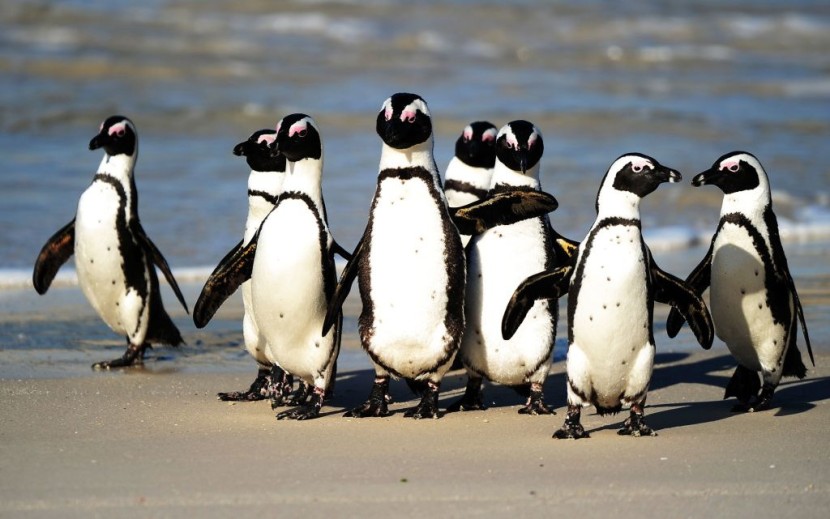
Honey bees attacked and killed South African penguins based on an analysis of a dead penguin as each body had multiple bee stings in its eye. Nobody knows why the insects attacked the flightless birds, but they died painfully, that is for sure.
The initial investigation does not know why the Cape honey bees attacked the 63 penguins and killed them with their stings, even why the eyes were stung, for that matter. Officials with non-profit organizations said the endangered birds' carcasses were seen at Simon's Town, 25 miles from Cape Town city, last Friday morning.
Penguins are endangered
The exact location of the dead birds was at the Boulders African penguin colony, said the South African National Parks (SANParks), which the government runs in South Africa, reported the Daily Mail.
According to government representatives, these flightless birds died from many stings sometime around Thursday afternoon and Friday morning. Experts from the SANParks Cape Town branch and penguin experts from the non-profit Southern African Foundation for the Conservation of Coastal Birds (SANCCOB) will investigate how it occurred.
According to David Roberts, veterinarian of SANCCOB, finding so many bee stings around the bird's eyes was unusual. He adds that it is not an everyday thing to see penguins killed in such a bizarre fashion. What was noticeable were the dead bees with the bird carcasses last Sunday.
All the dead birds were taken to SANCCOB to be studied; further testing will include samples from the animals for disease and poison. If the honey bees attacked and killed South African penguins, there should be a reason for it.
Read Also: British Woman Seriously Injured After her Twin Fights Off Savage Crocodile in Mexican Lagoon
The organization had the first analysis of the birds done, and there were no other injuries other than bee stings on the dead bodies.
More details
Investigators took note of the dead bees with the dead animals, said officials. The extent of bee-stung dead birds ranges to Fish Hoek beach, about four miles from Simon town towards the north side, cited The Independent.
One conclusion is the 63 dead birds were stung to death by the Cape honey bees, noted a SANParks official in a statement. How or why the bees even attacked the penguins to death is not understood. Their loss is damaging to the already threatened species edging to extinction.
The South African penguin is in danger of dying out and is on the red list of the International Union for Conservation of Nature. Roberts added that the birds must be preserved since they are already close to extinction as protected species.
While the Cape honey bees, which are a part of the same ecosystem, are not close to being extinct as the birds. Although the bees are impacted by less food, pests, diseases, and chemicals that can kill them are threatening. Marine biologist Alison Kock of the SANParks thanked the SANCCOB and Cape Town for working with them last Saturday noted Republic World.
An update states that no penguins were found dead on site. The situation will be checked as well. But officials were still taking a sample from the dead birds' carcasses if there is a chance of poison, disease, or other reasons not covered yet. Why the honey bees attacked and killed South African penguins is a mystery yet to be solved.
Related Article: Alligator Suspected of Devouring Louisiana Man During Hurricane Ida Captured, Human Torso Remains Found in Its Belly
© 2026 HNGN, All rights reserved. Do not reproduce without permission.








